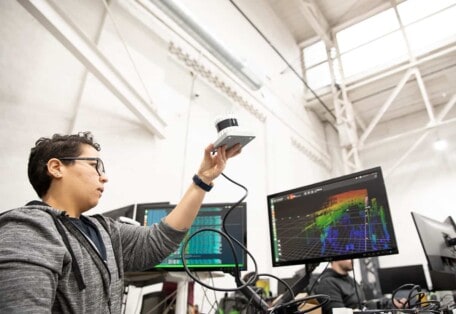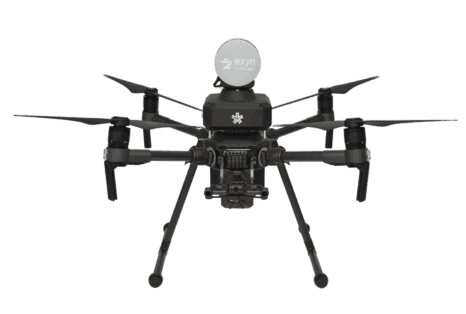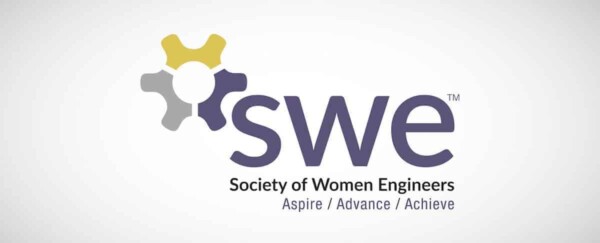“Iron Man made science cool. I was maybe twelve when I saw the first movie and I immediately was like, ‘whoa, I want to make those things,” Nour Hussein shares, laughing a little about her unlikely tech hero. She’s a Robotics Software Engineer working for a U.S. startup now, but her journey to achieve her dreams took time and dedication. After years of watching (and rewatching) Iron Man, and prepping for university, her first major career step was leaving her home in Cairo to go where the best robotics programs were — Pennsylvania.
Why Pennsylvania? For those who don’t know, the University of Pennsylvania has one of the best environments for STEM majors to flex their critical thinking muscles, thanks largely to the Pennovation program. Pennovation is UPenn’s collection of labs, offices, and production space entirely dedicated to helping students and faculty make their visions a reality. Here, Nour pursued her Bachelor’s in Computer Science and Master’s in Robotics, but the overwhelmingly masculine culture of the learning environment weighed heavily, as “the boys’ club nature of many of [her] classes sometimes made it difficult for [her] to feel heard and considered.”
 Shortly after completing her Master’s degree, Nour joined the Research and Development team at Exyn Technologies—a Philadelphia-based aerial robotics company specializing in autonomous aerial robots. It’s a good match; Nour isn’t your stereotypical Engineer working for a U.S. startup, and Exyn Technologies isn’t your traditional company. Born out of UPenn’s GRASP (General Robotics, Automation, Sensing & Perception) Lab, and part of the Pennovation project, Exyn is helping to make human tasks safer and more achievable.
Shortly after completing her Master’s degree, Nour joined the Research and Development team at Exyn Technologies—a Philadelphia-based aerial robotics company specializing in autonomous aerial robots. It’s a good match; Nour isn’t your stereotypical Engineer working for a U.S. startup, and Exyn Technologies isn’t your traditional company. Born out of UPenn’s GRASP (General Robotics, Automation, Sensing & Perception) Lab, and part of the Pennovation project, Exyn is helping to make human tasks safer and more achievable.
Exyn’s drones can fly themselves into tight, GPS-denied locations such as old mines or warehouses and easily navigate spaces that could be difficult for human teams to reach without encountering hazardous conditions. It’s total superhero stuff. Nour herself is responsible for helping to develop the code that gets the robots into the air. As for her colleagues in code, despite having brilliant female colleagues on the R&D team who advance Exyn’s work forward every day, it still isn’t uncommon for Nour to find herself the only woman in the room sometimes.
“What I love about Exyn is that they really prioritize the people who look at this world in a unique way and can envision a better world than we live in now,” Nour says. “My gender is never a consideration—it didn’t come into play when I was interviewing, and it remains irrelevant in my day-to-day contributions to the company. I tend to not even notice it until I’m in a meeting surrounded mostly by men.”
This was a complete departure from her coursework at UPenn, where she found herself talked over, dismissed, and “mansplained” too often. Nour brushed that off. After all, she was already used to hanging with the boys. Iron Man helped there too.
“Tony Stark tends to inspire young boys rather than young girls, right? Girls are given princesses to look up to. Because that never fully resonated with me, I was used to spending time in male-dominated spaces where discussions about male heroes were taking place.” She reflected.
At her job at Exyn, she’s a valuable part of the overall team, both in terms of her actual job description and office camaraderie. Her code serves a key component in serious flight-tests and just-for-fun toy drone races alike. When a problem arises, she collaborates with her teammates to find robust solutions to code issues. And her 7-month-old Bernedoodle puppy Kovu has an open invitation to the office in his role as the Chief Morale Officer. Still, she hopes that in the coming months and years, there will be an influx of women joining her in the lab.
The rise of organizations like Girls Who Code is chipping away at the idea of the tech startup boys’ club. For scientists like Nour, these initiatives are paving the way for a brighter, better world of tech.
“I think initiatives like Girls Who Code that have outreach programs for kids are a brilliant way to eventually even out the men to women ratio in STEM,” she says. “A lot of kids just end up moving on from thinking STEM is cool and an option for them during their formative years because of a lack of representation of people that look like them in popular media or the news headlines, as well as a lack of available resources to foster the exploration of that interest.”
Nour herself was a member of the Advancing Women in Engineering (AWE) and Women in Computer Science (WiCS) groups at UPenn. She hopes that the increasing awareness of the dearth of women in STEM fields, and opening up resources and opportunities for these women and girls, will naturally help to fill the obvious gap in science and tech professions. After all, things are starting to look more equitable in the Marvel Universe now, too. It’s Pepper Potts’ turn to wear the suit.
About the Author:
Rachel Stoll is a freelance writer who covers interesting stories and people in technology and entertainment. She also works as a copywriter and content strategist for brands you definitely know. You can find her on most social platforms at @RachelStoll.
Related Content
- The Computer Wore Heels
- Katie Bouman and the Black Hole Heard ‘Round the World
- ‘Day in the Life of a Materials Engineer
Author
-

SWE Blog provides up-to-date information and news about the Society and how our members are making a difference every day. You’ll find stories about SWE members, engineering, technology, and other STEM-related topics.






